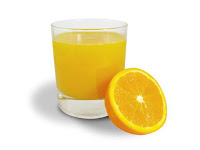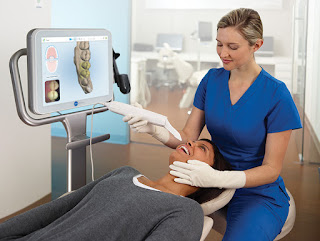With Christmas celebrations
already well underway, it’s time for all of us to eat, drink and be merry. It’s
the time of year when reckless amounts of cake, sweets and other holiday
goodies are consumed, and everyone feels very content about it. Except for
dentists. Because we know that over the Christmas period we will see a lot of
people with damaged teeth, toothache and other problems, and in January we will
be filling an awful lot of cavities. And since very few people actually enjoy
going to the
dentist to have work done, we thought we would share with you some
of the festive foods to avoid this year if you want to protect your teeth.
Candy Canes

These iconic Christmas treats are
often used as tree decorations, or given out as a festive treat to children,
and even crushed up and baked into holiday foods. But just like other hard
candies, they are notoriously bad for your teeth and mouth. Not only do they
represent a huge injection of sugar (that’s basically all they’re made of),
which sticks to the teeth and encourages decay, they are also a leading cause
of chipped teeth from people biting down on them. They can also cause abscesses
or ulcers, where people suck on the ends and make them sharp, and then cut the
inside of their mouths with them. So while candy canes look great, be careful
when you eat them, and always rinse your mouth with water afterwards (or
better, brush your teeth).
Dried Fruits
and Fruitcake
If you were looking for an excuse
to avoid eating fruitcake this Christmas, here it is. While dried fruit might
seem a better option for a snack than a cookie or cupcake, they can actually
increase the risk of you getting a cavity. This ‘healthy’ alternative is
actually packed with sugar, and the sticky nature means it’s harder to shift
off your teeth afterwards, making them a breeding ground for bacteria.
Fruitcake has a similar problem, but with an added risk. If you happen to have
weak teeth, crowns or fillings, these super-sticky cakes could actually pull
them apart, leading to some pretty intense pain, not to mention the perfect
environment for bacteria to multiply and cause cavities.
Hot Chocolate
Is there anything more
Christmassy than a steaming mug of hot chocolate, topped with whipped cream and
marshmallows? Mulled wine maybe, but generally hot chocolate sales soar at this
time of year, with chains like Costa seeing a 200% increase in the number
ordered compared to other times of year. But cocoa has an extraordinarily high sugar
content, which can lead to tooth decay, and all that extra dairy can lead to
bad breath – which isn’t great when you’re supposed to be hugging a lot of
people!
EggNog
This is a pretty new
introduction to the UK, but it’s gaining popularity quickly. But for a
dentist,
Eggnog is one of the worst holiday drinks you can consume for 2 reasons. The
first is the fact that it includes alcohol – usually bourbon or some other
spirit, which can wreak havoc on your mouth. Alcohol can make the mouth very
dry, which creates an environment primed for gum disease, tooth decay and bad
breath. To add to that, Eggnog is mainly made of milk, cream and other dairy
products. But dairy proteins are easily converted into odorous sulphur
compounds by the bacteria that live in your mouth. In other words, Eggnog will
give you some killer eggy breath!
Anything With
Caramel Or Fudge
We know it’s an absolute festive
staple, but that box of Quality Street could cause a lot more problems than you
think. Caramel and fudge are particularly bad for your teeth, not only because
they contain higher levels of sugar than other sweets, but because they are
sticky, hard and gooey. This means that you’re a risk of pulling out fillings,
crowns or even teeth as you try to prise your jaws apart. And the fact that
you’re often picking it out of (or sucking it off) your teeth for hours after
you ate it shows that the sugar content sticks to your teeth like glue, giving
the bacteria in your mouth all of the food they need to multiply and cause
cavities. So if you don’t want to kick off your 2019 having cavities filled,
we’d advise avoiding too much caramel.
All that said, we know how much
fun Christmas can be, and that for many it’s the one time of the year they
indulge. So we’re not saying you should avoid eating or drinking these things
completely. If you want to, have them! Just be sure to take care of your teeth
if you do. That means drinking plenty of water to flush the bacteria off your
teeth, and making sure you brush your teeth, floss and use mouthwash at least
twice a day (no matter how much you don’t feel like it on Christmas Day! If you
want to find out more about keeping your teeth healthy over Christmas, or to
book your check-up, just
get in touch with us today.
To transform your smile, contact Appledore Dental Clinic Milton Keynes and you will start smiling more






















